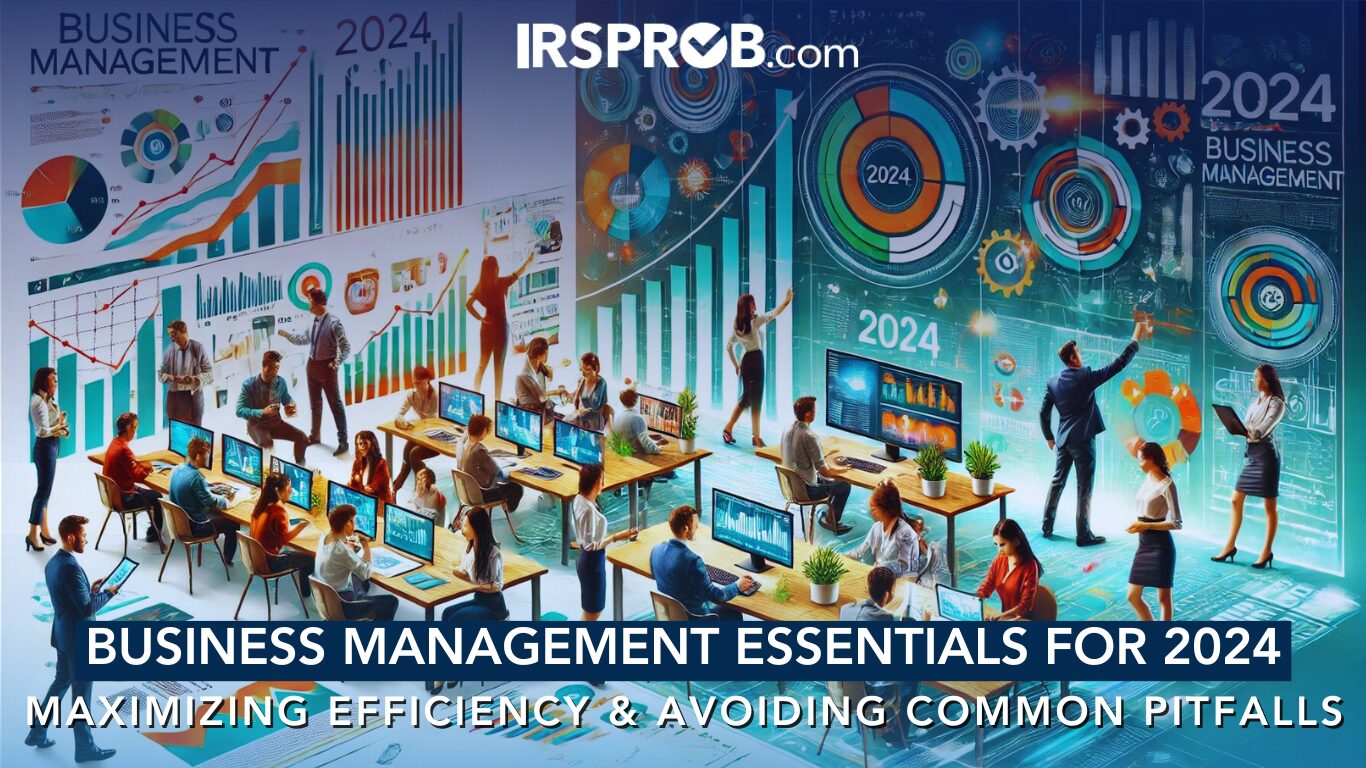
Running a successful business in 2024 requires more than just a good idea—it demands strategic planning, effective management, and attention to financial details. In this post, we’ll explore key business management tips to help you navigate the challenges of the coming year and maximize your company’s efficiency and profitability. Drawing insights from core business principles, we’ll look at how to avoid common pitfalls that often lead to failure, with a focus on practical, actionable advice tailored for business owners.
1. Start with a Solid Business Plan
A well-crafted business plan is the foundation of any successful business. It defines your short- and long-term goals, outlines your business structure, and helps identify potential tax advantages. Many lenders and investors won’t even consider offering financing without a comprehensive business plan. Beyond that, creating one forces you to examine every aspect of your business, helping you avoid problems before they arise.
Take advantage of resources like SCORE (Service Corps of Retired Executives) to get free business advice and mentorship. They can assist you with everything from writing your business plan to navigating the challenges of business growth.
2. Proper Budgeting: Plan for the Year Ahead
Budgeting is essential for allocating resources efficiently and setting realistic financial goals. Start by reviewing your financial statements from previous years to make accurate projections. A well-organized budget not only helps in controlling costs but also allows you to identify areas where your business can grow. Be sure to allocate enough funds for marketing, technology upgrades, and unforeseen challenges, all while keeping a close eye on your cash flow.
Incorporating regular budget reviews into your management process helps ensure your business remains adaptable to changing circumstances, allowing for mid-year corrections when necessary.
3. Control Procedures: Safeguard Your Assets
Effective internal controls are crucial in protecting your business from fraud and theft. This can be particularly challenging for small businesses with limited staff. At a minimum, it’s important to separate duties among employees to avoid situations where a single person can both approve and process financial transactions.
For instance, tasks such as receiving customer payments, ordering supplies, and paying vendor bills should ideally be handled by different people. This reduces the likelihood of theft and misappropriation of assets. Consider conducting background checks during the hiring process and enforcing mandatory vacations for employees in sensitive positions, as this can disrupt any fraudulent schemes in progress.
4. Understand the Importance of Capital
Many businesses fail due to insufficient capitalization. Start-up costs, like acquiring capital equipment or leasing space, can quickly add up. It’s critical to ensure that you have access to enough capital—whether through savings, investors, or loans—until your business becomes profitable.
The U.S. Small Business Administration (SBA) is a valuable resource for business owners, offering loan guarantees, disaster recovery assistance, and technical help to ensure you have the financial resources needed to thrive. Be mindful that poor credit arrangements or over-investing in long-term assets can strain your cash flow, so it’s essential to balance growth and sustainability.
5. Why Businesses Fail: Avoid Common Mistakes
According to data from the SBA, around 20% of new businesses fail within the first year, and about 50% survive beyond five years. The most common reasons for failure include a lack of experience, insufficient capital, and poor location. Other common pitfalls are over-investment in fixed assets, inadequate inventory management, and using business funds for personal expenses.
Planning for unexpected growth is also important. While rapid growth can seem positive, it can strain resources and potentially lead to failure if not managed properly. Be prepared to adjust your business model and operations as needed to accommodate growing demand without losing control of costs and quality.
6. Separation of Business and Personal Finances
essential to maintain a clear separation between your personal and business finances. Commingling these accounts can lead to a host of problems, from mismanagement of funds to tax compliance issues. A separate business account simplifies bookkeeping and makes it easier to track expenses and maximize tax deductions.
Additionally, improper use of business funds for personal needs can raise red flags with the IRS. It’s important to maintain detailed records and receipts for all business expenses, especially in the event of an audit.
7. Leverage Technology and Resources
Technology continues to revolutionize business management, offering tools that can streamline operations, improve customer relationships, and enhance financial oversight. Utilize online resources like the SBA, SCORE, and business planning tools to stay informed and receive guidance. Consider implementing accounting software and project management tools to automate tasks, reduce human error, and ensure accurate financial reporting.
Conclusion
Managing a business in 2024 involves staying ahead of the curve, anticipating challenges, and being adaptable. By developing a solid business plan, maintaining strong internal controls, ensuring sufficient capitalization, and leveraging modern tools, business owners can navigate the complexities of today’s market with greater confidence. Avoid the common pitfalls that lead many businesses to fail and position your company for long-term success.
If you’re unsure about how any of these tips apply to your specific business or have questions about the tax implications of your business decisions, reach out to us at IRSProb.com for expert guidance.







